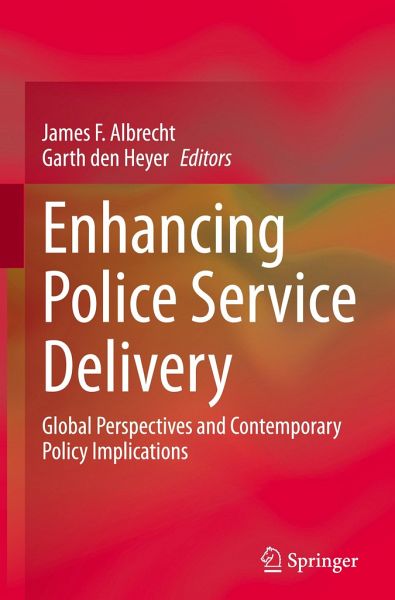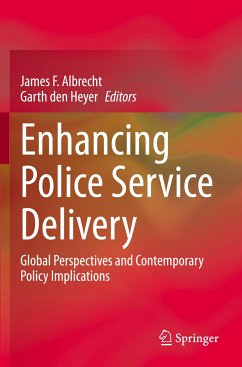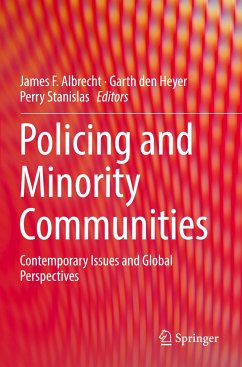
Enhancing Police Service Delivery
Global Perspectives and Contemporary Policy Implications
Herausgegeben: Albrecht, James F.; den Heyer, Garth

PAYBACK Punkte
38 °P sammeln!
Contemporary police service delivery and performance are complex phenomena. Law enforcement, particularly at the local level, must therefore face the additional challenges of globalization, cybercrime, counter-terrorism and calls for reform, at a time when extreme budgetary constraints are being implemented. Policing operations encompass multiple critical tasks and responsibilities not routinely measured and evaluated, such as response to incidents involving medical assistance, homelessness, mental illness, community engagement, and neighborhood problem-solving endeavors.This volume aims to pr...
Contemporary police service delivery and performance are complex phenomena. Law enforcement, particularly at the local level, must therefore face the additional challenges of globalization, cybercrime, counter-terrorism and calls for reform, at a time when extreme budgetary constraints are being implemented. Policing operations encompass multiple critical tasks and responsibilities not routinely measured and evaluated, such as response to incidents involving medical assistance, homelessness, mental illness, community engagement, and neighborhood problem-solving endeavors.
This volume aims to provide government, criminal justice and policing administrators, policy makers and criminal justice scholars and researchers with comprehensive analyses of the critical issues impacting the challenges inherent in providing effectual public safety, security and service, all from a global perspective. It takes into account popular criticism, extreme budgetary constraints, and therelatively novel and overwhelming challenges of terrorism and cybercrime. The book merges study and practice to identify avenues to best serve community interests, ensure organizational success, and enhance public confidence in policing and in rule of law.
This volume aims to provide government, criminal justice and policing administrators, policy makers and criminal justice scholars and researchers with comprehensive analyses of the critical issues impacting the challenges inherent in providing effectual public safety, security and service, all from a global perspective. It takes into account popular criticism, extreme budgetary constraints, and therelatively novel and overwhelming challenges of terrorism and cybercrime. The book merges study and practice to identify avenues to best serve community interests, ensure organizational success, and enhance public confidence in policing and in rule of law.














